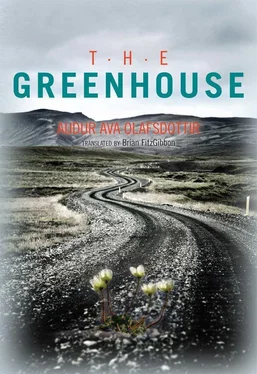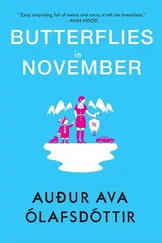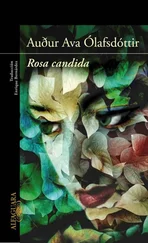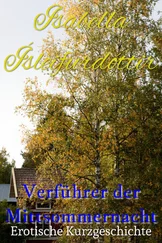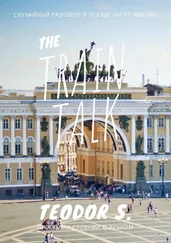
I normally wake up at the crack of dawn. Besides, it’s impossible to sleep through the clatter of the bells, since the bed I sleep in is practically on the doorstep of the temple. Before going into the garden I have a local custard pastry for breakfast in the café, at lunchtime I have vegetable soup in the monastery, and in the evenings I dine in the restaurant next door. My second week is still mostly concentrated on pruning the rose plants, but also shaping the evergreen shrubs and bushes into various forms and patterns, spheres and cones, in accordance with the pictures in the old books. In addition to the roses and shrubs in the garden, there are oak trees, a grove with fruit and fig trees, and various other plants: fellowship roses, peace roses, fuchsia, Adam’s beard, and Gloria Dei all grow in the same patch by the tool shed. More often than not I work solidly until darkness falls at around six.
When I get back to the guesthouse I have a shower, wash off the rose fragrance, and change clothes before going over for some deep-fried fish. I’ve also had fish soup from the woman next door, once grilled fish that was wrapped around a skewer with onion and bacon, and I’ve twice had squid. It took me a long time to cut the tentacles and chew them. After two weeks I feel a longing for meat. I wonder if it would be too presumptuous of me to ask the woman in the restaurant if she knows how to cook meat. I decide to take the matter up with Father Thomas instead. He scribbles four words on a note that I’m supposed to hand to the woman. After that I get meat every evening, except for Fridays, when there’s fish.
— I just thought you wanted fish, is all she has to say on the matter.
Every now and then, I call Dad when I come out of the restaurant, although not a lot lately. He’s normally doing his own cooking at around that time, which means that the calls generally revolve around whether I can help him to decipher Mom’s recipe notes. The next time I call him he tells me that Jósef is coming for dinner so he thought of inviting Bogga as well. She’s invited him three times, once for lamb soup, then fish in breadcrumbs, and glazed ham, so now he feels the need to return the favor and invite her over to his place, and he needs some advice:
— Do you remember any of Mom’s ball recipes?
— Meat or fish balls?
— Fish. I’ve tried frying a few but they all fall apart.
— Don’t you need potato flour?
— With the balls, you mean? Mixed into the minced fish?
— Yeah, about two spoonfuls.
— Was there anything else that’s supposed to go into it, Lobbi?
— Egg and onion, if I remember correctly.
— I knew I was doing something wrong.
He’s silent a moment and then asks me if I’ve gotten to know any of the locals yet.
— No, just the priest really, Father Thomas.
— Are there no females winking at you there?
— No, nothing like that.
— What about Anna?
— There’s nothing between us. These things just happen, Dad.
— I wouldn’t let a chance like that go by if I were in your shoes.
— It’s not as if I have any choice. Besides, it takes two. You can’t just fall in love at the drop of a hat.
— It’s a piece of cake, Dabbi lad.
I switch subject and tell him I’ve started to learn the language.
— Well, you’ve never had any problems with languages, Lobbi. Although it mightn’t be such a great investment to learn a language that so few people speak, when there’s already so very few people that speak your own language.
Then he adds that he recently heard that every week there’s one language that dies in the world.
— Well I suppose I better go home and learn some grammar, I say to wind up the call.
— Are you sure you’re not wasting your time learning a language that’s threatened with extinction?
When I get back to the guesthouse I meet Father Thomas in the hall.
— You’re welcome to come over for nostalgia.
— What do you mean?
— To watch Nostalgia with me. You have to be able to look suffering in the eye to be able to empathize with those who suffer.

The movies in the evening make a big difference, even though they’re not subtitled and are in different languages. I even occasionally try to converse in the village vernacular with my neighbor from room number seven at a very rudimentary level. I sit there with a dictionary on my knees, which makes the conversations a bit slow but not impossible.
— There’s everything in here but violence, my neighbor tells me. It’s clear that on every film evening my host is renewing his acquaintance with some old masterpiece.
— I generally look at movies that are larger than life, he says, handing me a video case to look at. There’s a great deal of both intelligence and longing in this film. He takes the tape from me and replaces it on the shelf. Then he grabs a bottle and closes the blinds.
— The claim that art has to represent reality is a strange one, he says out the window. You’d think people would have had enough of mundane reality.
When the film is in a language I don’t understand, Father Thomas gives me the gist of the story in a few concise sentences. But even though he sometimes pauses the film twice or three times to bring me up to speed on what’s happening, it’s often difficult to figure out from his summaries what the film is actually about. His focus is more on trying to convey the creative spirit behind each director. He doesn’t just restrict himself to the plot, but instead emphasizes the construction of certain images, pondering on camera angles, talking about the settings, and freezing the tapes to point out any unusual editing, which is his main field of interest in filmmaking.
— Beauty is in the eyes of the beholder, he says.
He’s also interested in the psychological buildup, but he normally goes so far in his analyses that it’s hard to keep up with him. More appropriately, he gives me some kind of guideline or key that I can use to decipher the meaning myself. Even though it’s difficult to understand everything that’s happening on the little screen, it’s better than hanging around in my room alone every night. Father Thomas also has special theme weeks, which he dedicates to particular directors, subjects, or actors. At the end of them we have brief discussions about the content while we finish our drinks.
This evening’s film is all in blues that don’t come over too well on the old TV set, even though Father Thomas has drawn the blinds. The picture starts with a fatal accident on a rainy highway and ends with an ode to love by Saint Paul the Apostle, sung by a soprano. The heroine is surrounded by death throughout the film, but in the end she longs to live, even though she’s lost everything worth living for. Before I even know it, I’ve mentioned my worries about death to Father Thomas.
— I’m not worried about death itself, I tell him, but rather I’m worried about my thoughts about death.
He’s standing and drawing the blinds open; outside the sky is black.
— What do you mean when you say you constantly think about death?
— About seven to eleven times a day, depending on the day. Mostly early in the morning when I’ve just got into the garden and late at night in bed.
I’m half expecting him to ask me how often I think about the body and sex. I could even envisage discussing those things with him, but it’s easier to start discussions about important things on a more manageable subject than sex. But if he were to ask me, I’d say about as often as death. Seven to eleven times a day. As the day progresses, thoughts about death start to give way to thoughts about the body, I would say.
Читать дальше
